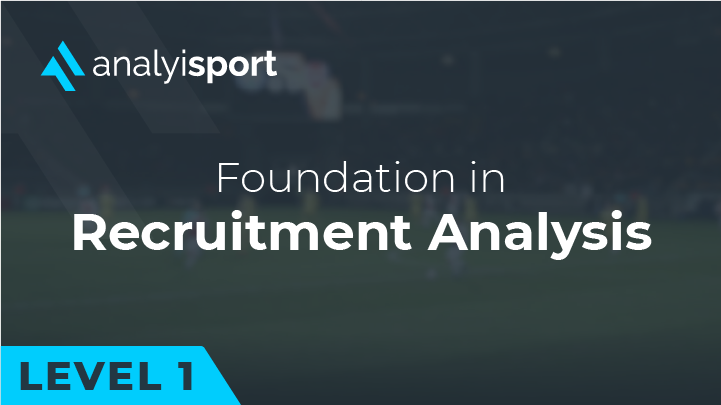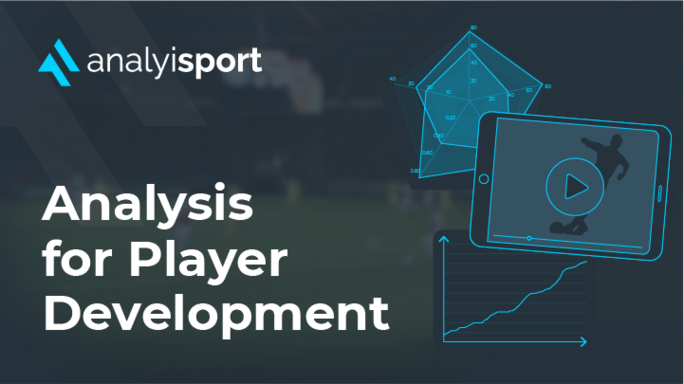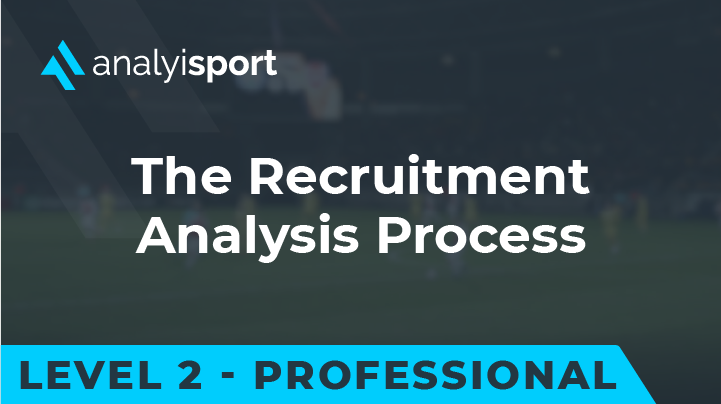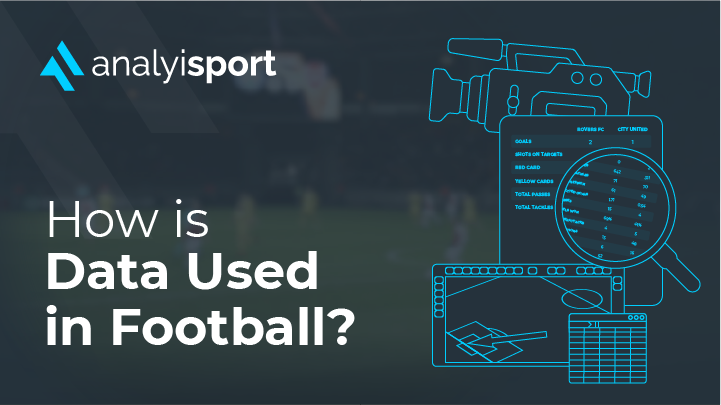How to Become a Football Analyst
How to Become a Football Analyst
In some ways, football data analysis is really easy to get into. There’s lots of football data available online and it isn’t hard to find other analysts to connect with on social media. Plenty of people start their own blog or post their work on Twitter. If you’ve got some data and you’ve got some performance questions you want answering, you can start right away.
However, if you have ambitions of working as a professional analyst, you need to give yourself a firm foundation to build on. You’ll need to learn more about the different skills and techniques that analysts use and the different jobs they are expected to do when working at football clubs.
What is a football analyst?
Football analysts use data and video to analyse the performances of players and teams. They’ll look for the key statistics that explain why, for example, a striker has suddenly stopped scoring so many goals, or why the team is conceding a lot of goals from crosses.
There is more than one job that an analyst can do at a football club. Analysts in different roles use the data for different purposes
A recruitment analyst uses data to identify potential signings for their club. They will develop a strong knowledge of the kind of players that fit the club’s philosophy and then create player profiles and identify key performance indicators. The analyst then searches through databases of player performance data, provided by companies such as WyScout, to find players who match these stats.
An opposition analyst focuses on analysing their team’s upcoming opponents. They will use data and video to find out more about how the opponent plays, discovering their strengths and weaknesses. The analyst then puts together a report for the manager. Sometimes they will also give a presentation to the players. The aim is to use analysis to prepare the team for the match and give them the best chance of getting a good result.
A performance analyst will analyse their own team’s performances. They will study match data and record training sessions to create a clear picture of how each player is performing and how well the team’s tactics are working. Their job is to help improve performance levels by finding any problems, then using the data and video to explain what’s gone wrong and how it can be improved. They can also give feedback on what the team and the players are doing well. Managers often use this kind of positive analysis to boost team morale and increase player confidence.
What degrees do football analysts have?
The qualifications of some data analysts can feel intimidating. Laurie Shaw, a data scientist at Man City, has a PhD in computational astrophysics from the University of Cambridge. At Liverpool, data scientist William Spearman has a PhD in particle physics from Harvard University.
Of course, a PhD is not a necessity. Shaw and Spearman are exceptions and it’s very unusual to move from academia to working at a top football club. But if you’ve ever looked at a job advert for an analyst job, especially one at a top club, you may have seen them asking for applicants with an undergraduate degree.
There are a few different types of analysis degree you can do. There are sports performance analysis degrees, which include a football element, but don’t focus solely on any one sport. There are courses that combine football analysis with learning about coaching and player development. There are also courses that focus entirely on football analysis.
Doing a football analysis degree has many advantages. Not only does it teach you the skills and knowledge that you’ll need, but going to university can help you develop contacts and give you access to opportunities such as work-placements.
However, a degree is an expensive option. It takes at least three years to complete and you’re not guaranteed a job at a professional club at the end of it. It can be a good option, but it’s not right for everyone.
Do you need a degree to be a football analyst?
Most analysts work their way up the ladder, starting in academies or at lower league clubs, and then moving to clubs in bigger leagues as they gain more experience. There are opportunities to do internships and some people volunteer as analysts at their local small club. Having a degree can help you get on the ladder, but it’s not the only way.
Because data analysis can be done from anywhere and by anyone, people with no previous experience working at a football club are being spotted online and offered roles at professional clubs.
Jay Socik is one example. He ran a Twitter account using data and video to analyse the performance of the team he supports, Sheffield United. Sharing his work online helped Socik build up a following and the quality of his insights led to him being headhunted by MRKT Insights, a football consultancy business. This job gave Socik experience working with various clubs, including Luton Town, who were so impressed by his work that they made him their Head of Recruitment Analysis.“What I was doing before on Twitter as @Blades_analytic had no real consequences, I just gave my opinion for others to read and that was that.” Socik told The Athletic. But now his analytics work has a real impact. “It has hit me how emotionally invested you become. Some of those boys out there, you had a small part in bringing to the club.”

What skills do football analysts need?
What is more important than having a specific qualification, is having the right skills. If you can show a club that you can produce high quality, insightful analysis, then they’re going to take you seriously.
The first skill you need is being able to understand what the data actually shows. There is a huge amount of different statistics and metrics available. You need to understand what each one means and how they relate to each other. Knowing that a midfielder with a high Expected Assists (xA) stat has been creating lots of chances isn’t enough. You need to be able to use data and video to find out about the types of chances they’re creating, how these situations are arising, and how opponents are responding to the threat. You need to be able to look at the data in detail and identify which stats are the most important to explain what’s happened.
The second skill is being good at presenting your insights. You can be great at interpreting the data, but if you can’t clearly explain what you’re seeing, other people won’t be able to fully understand your work. At a club, this is a major problem. The manager and other coaching staff have busy schedules and need to be able to grasp ideas quickly. Knowing how to use graphs and other visuals will help you share your insights and get your ideas across to the people who can act on them.
The third skill is being able to choose well. There is so much data available. A skilled analyst will know which questions to ask and where to find the data that can answer their questions. They will also be good at choosing which data to present to others, picking the most relevant information.
You don’t need a degree to learn these skills. There are online courses that you can take, including the large range of courses AnalyiSport offer which cover all aspects of football data analysis. AnalyiSport’s courses have been created by professional analysts who have worked in the world’s top leagues, including the Premier League, Serie A, and La Liga.
Once you’ve got the skills, practice as much as possible, share your work online, and look for realistic opportunities. You’re unlikely to get a job at Liverpool or Man City right away, even if you do have a PhD, but there are plenty of opportunities further down the football ladder. Look out for internships, academy jobs, and opportunities at lower league clubs. Anyone can become an analyst.
Related Courses:

- Level 1
- Course
Level 1: Foundation in Recruitment Analysis in Football
£70.00
Share this article
Our Learning Pathways
AnalyiSport is for everyone who is passionate about analysis in football. Where are you in your development journey?
Become a Football Scout
As more clubs than ever look to build data into their recruitment process, an understanding of recruitment analysis is your ticket to success in the game.
Related Articles
Our team provides news and insights from the cutting edge of football analysis.






